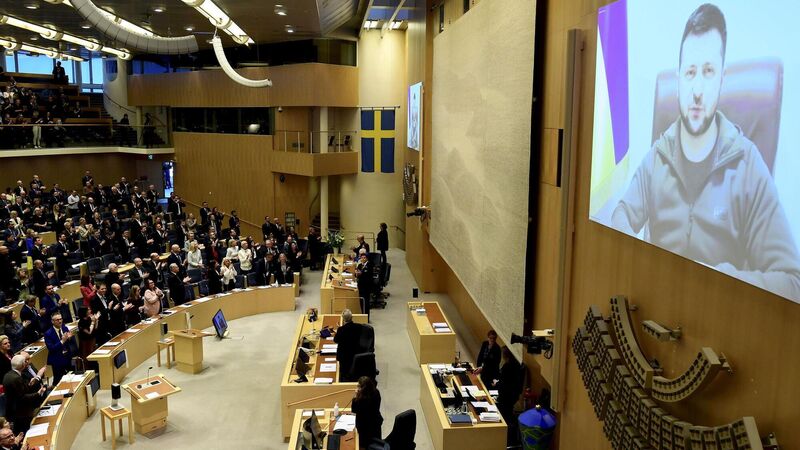Irish Examiner view: Ireland will do its bit in support of Ukraine

Ukraine's president Volodymyr Zelenskyy receives a standing ovation as he addresses Swedish parliament earlier this week. Picture: Paul Wennerholm/TT News/AP
We must not take umbrage at the comments attributed to Ukraine’s president, Volodymyr Zelenskyy, about what he perceives as lukewarm support for his decimated country from Ireland.
Zelenskyy, a brave and inspirational leader operating in impossible circumstances, made reference to Ireland as a country that “almost” stands with Ukraine in his video address to 27 European leaders in Brussels.















